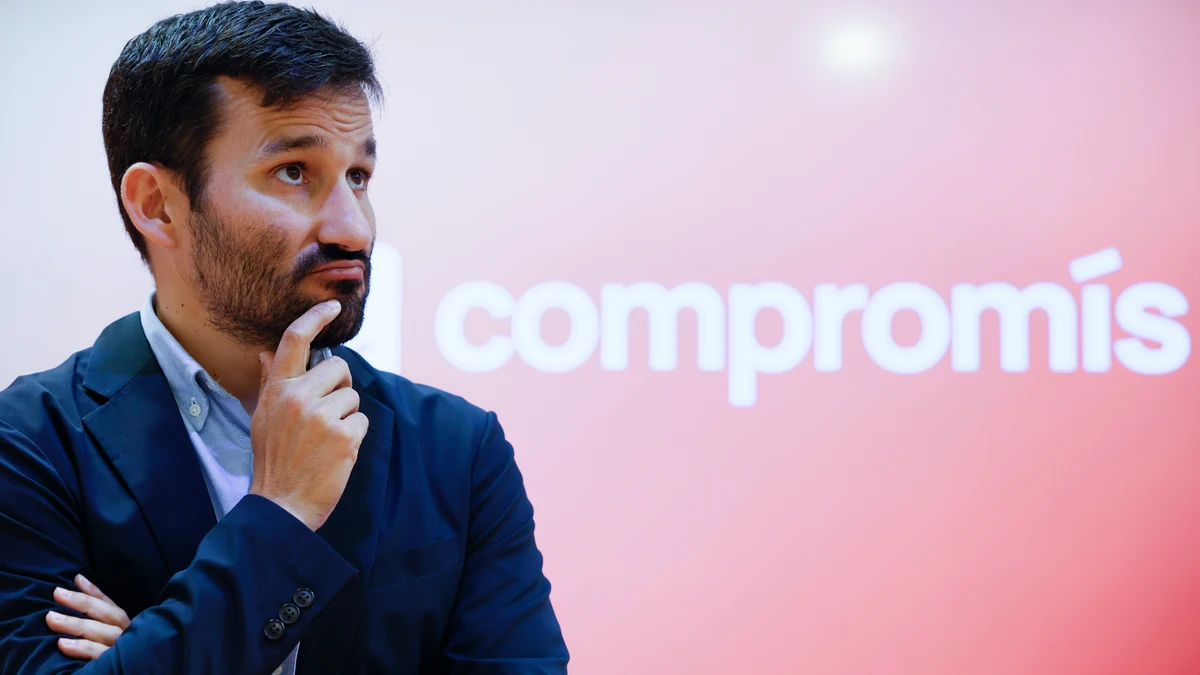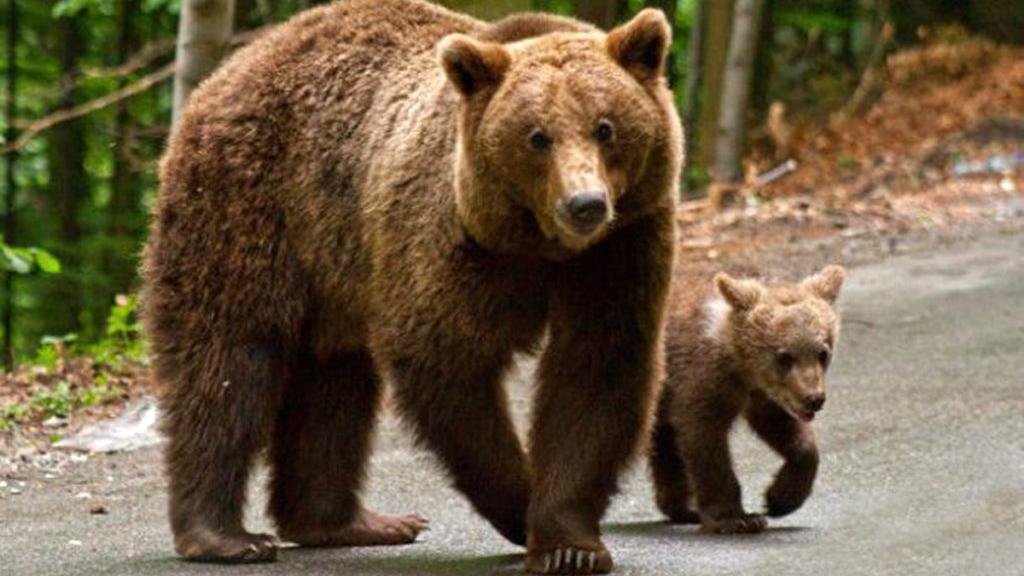Germans against the far-right
From the Coasts to the Alps, Germans are protesting against the far-right: ,“Menschenrechte statt rechte Menschen”
March 2024: In Saarland, Germany’s smallest state, old and young took to the streets in citieds and small towns against the right
Germany’s smallest state confronts the right
March 2024: In recent weeks and days in Saarland, Germany’s smallest state after the city-states of Berlin, Hamburg and Bremen, tens of thousands of people demonstrated against the right and its ideology of racism, xenophobia and hate.
Across the state, which is home to less than one million people, protests took place in the state capital Saarbrücken and many smaller towns including Neunkirchen, St Wendel and St Ingbert. On Sunday, 17 March, around 3,000 people took to the streets in Saarbrücken to protest against right-wing extremism. They marched through the city centre. Everything went peacefully, said a police spokesman in Saarbrücken. An alliance called ‘Against the AfD and racism’, which is supported by around 20 groups, had called for the action. (The AfD or Alternative für Deutschland, is the country’s principal far-right party.)
Anti-right protests also took place in rural areas of Saarland. Around 250 demonstrators gathered on the market square in Wadern for a protest on Saturday afternoon (16 March). They stood up for an open society. Under the motto “The Hochwald remains colourful”, protesters followed the call of a broad alliance of local organisations in the rural Hochwald district.
The organisers, which included an alliance of church communities, saw the rally on Saturday as a prelude to similar actions that are to take place in other rural districts over the coming weekends. The aim is to stand together against the shift to the right in politics and society.
Separately, Saarland’s business associations and trade unions issued a rare joint statement, warning against the rise of right-wing extremism. “The far right is damaging the local economy and will make Saarland less attractive to investors. Existing jobs will be lost, new ones not created.”
Small-town Germany speaks out against the far-right
February, 2024: While on the previous two weekends, hundreds of thousands of Germans took to the streets to oppose the ideology (Gedankengut) of far-right groups or parties, including the AfD (Alternative für Deutschland / Alternative for Germany) in large cities like Berlin, Hamburg or Stuttgart, this weekend (10/11 February) protests and demonstrations took place in smaller towns.
According to the police, up to 4,000 people demonstrated in Itzehoe (Popl 33,000) In Rostock (Popl 209,000), some 4,000 people gathered under the slogan ‘Never again is now’ (Nie wieder ist jetzt). There were around 2,000 in Werne (Popl 30,000) and around 1,200 in Fröndenberg (Popl 22,000). ‘Sinsheim is colourful!’ (Sinsheim ist bunt) was the motto under which around 1,500 people gathered in the town (Popl 35,000) in Baden-Württemberg.
In Gotha (Popl 45,000), Thurin dgia, the slogan also was ‘Never again is now’. A representative of the Gotha-is-colourful alliance spoke of at least 1,100 participants.
There were also various rallies in other German towns. with several hundred participants, for example in Timmendorfer Strand (Popl 9,000) and Herford (Popl 67,000). In Ennepetal (Popl 30,000) in the southern Ruhr region, around 900 people gathered under the slogan ‘Ennepetal against the AfD’. “Democracy is an achievement. It cannot be taken for granted and it is not inviolable. We must defend it,” the organisers said.
————————-
February 2024: Once again this weekend (3/4 February), hundreds of thousands of Germans demonstrated against the far-right. In Berlin alone, 200,000 people gathered in front of the Reichstag building (German parliament).
Under the slogan ‘We are the firewall: Alliance against the right” (Wir sind die Brandmauer: Bündnis gegen rechts)’, men, women, the old and the young protested in Berlin against right-wing extremism and the far-right AfD party (Alternative for Germany / Alternative für Deutschland).
The rally was called by the alliance “Hand in Hand – Act in Solidarity Now!” Tens of thousands of people joined hands and raised their hands to the sky. The event was directed against right-wing extremism and called for “the defence of an open and democratic society”. Political parties were not among the organisers, but many politicians took part in the rally.
Demonstrations also took place in numerous other cities. According to the police, almost 25,000 people gathered in Augsburg (Bavaria). The crowds were so large that the town hall square was cordoned off. The adjacent streets were then cleared for the demonstration so that the large number of people could disperse.
According to the police, around 30,000 people gathered in Freiburg to protest against right-wing extremism. More than 300 organisations, including the Bundesliga soccer club SC Freiburg, trade unions and churches, had called for the largest event in the state of Baden-Württemberg. Similar protests were also registered elsewhere in Baden-Wüerttemberg, in Lahr, Lörrach, Wiesloch and Aalen.
According to the police, more than 7,000 people peacefully formed a dense human chain around the Lower Saxony state parliament in Hannover. The organisers spoke of around 10,000 participants. Signs and posters bore slogans such as “Human rights instead of right-wing humans” (it sounds better in German: Menschenrechte statt rechte Menschen.)
Thousands of people also took to the streets in Dresden. A rally was initially held on Theaterplatz (theatre square), followed by a demonstration march through the old town. More than 200 organisations, institutions and initiatives from Saxony had called for a demonstration under the slogan ‘We are the firewall’. “There were 30,000 of us today,” said a spokeswoman for the alliance.
Protests also took place in many other cities. According to the police, up to 10,000 people gathered in Krefeld and Mainz. According to the organisers, more than 15,000 people took part in Saarbrücken.
German Chancellor Olaf Scholz described the demonstrations as a “strong sign” for democracy and the Basic Law (German constitution). “Whether in Eisenach, Homburg or Berlin: in small and large cities across the country, many citizens are coming together to demonstrate against forgetting, against hatred and agitation – this weekend too,” the Scholz wrote. The Chancellor himself took part in a rally in Potsdam in January.
The leader of the far-right AfD, Tino Chrupalla, described the numerous rallies in the country as a distraction by the government. In an interview he said: “Of course, the government is currently using the demonstrations in order to distract attention from the real problems.”
——————————-
January 2024: Factory workers, mayors, AI programmers, teachers, taxi drivers, sex workers pensioners, college students, rappers, footballers, doctors, and industry bosses are among hundreds of thousands of Germans who have been and will be demonstrating against right-wing extremism. At least 80,000 people in Hamburg and Munich, 100,000 people in Berlin, 20,000 people in Karlsruhe and Stuttgart, at least 10,000 people in Leipzig and up to 40,000 people in Dresden. According to police reports, hundreds of thousands of people took to the streets throughout Germany at the weekend to protest against right-wing extremism and for democracy. The organizers even estimate that a total of 1.4 million people took part in the demonstrations on Friday, Saturday and Sunday. (19 to 21 January 2024)
,Background
,The background to the current wave of protests against right-wing extremism in Germany is a meeting between far-right propagandists and politicians from the AfD (Alternative for Germany) and the rightist wing of Germany’s main opposition party the CDU (Christian Democratic Union) in a villa in Potsdam, south of Berlin.
,
,The media outlet Correctiv made the Potsdam meeting public. The central point of the meeting was that the former head of the right-wing extremist Identarian Movement in Austria, Martin Sellner, spoke about ‘re-migration’. When right-wing extremists use the term, they usually mean that a large number of people of foreign origin should leave the country – even under duress. AfD politicians also use the term.
,
,Martin Sellner’s idea of re-migration seemed to be the focal point of the gathering. Everything else – Covid restrictions and vaccinations, the issues of Ukraine and Israel – are all bones of contention on the right. Their stance on re-migration, however, is what unites them.
,
,The Sellner masterplan even includes a destination to ‘move people to’, a so-called ‘model state’ in North Africa, that would apparently provide space for up to two million people. Sellner’s concept is eerily reminiscent of the Nazi’s 1940 plan to deport four million Jews to the island of Madagascar. It is unclear whether Sellner had this historical parallel in mind when devising his plan. It may also be a mere coincidence that the organisers of the event chose a location less than eight kilometres away from the villa where the 1942 Wannsee Conference took place, the meeting where the Nazis coordinated the systematic extermination of Jews.
,
,With only ten months to go until the regional elections in the German states of Thuringia, Saxony and Brandenburg, this meeting has shown that racist attitudes extend into the highest echelons of the AfD party. And it doesn’t stop with attitudes; certain politicians want to put their racist ideas into action, despite the fact the AfD firmly denies that it is a right-wing extremist party.
Demos and protests
Around 3,300 people demonstrated against right-wing extremism and the AfD in Jena, Thuringia. The state in eastern Germany, once home to leading liberal writers and philosophers like Friedrich von Schiller, Alexander von Humboldt and Wilhelm Hegel, has recently become a stronghold of the far-right Alternative for Germany party (Alternative für Deutschland, AfD).
At the demonstration, Thuringia’s socialist Prime Minister Bodo Ramelow called for unity against the right. He described the people on the streets as a firewall. He pointed out that large companies in the state, such as Jenoptik, needed to be open to the world. Ramelow said that there should not be the impression that some of the people who live here are no longer welcome.
Earlier in the week, some 10,000 people in Freiburg, southwestern Germany, filled the historic city centre to call for an end to antisemitism, islamophobia and xenophobia of any kind. One of the thousands demonstrating against right-wing extremism in Freiburg was Christian Streich, the manager of Bundesliga club SC Freiburg.
Football against the far-right
In a remarkable speech, Christian Streich, the manager of Bundesliga club SC Freiburg, called out for Germans to end their complacency. “It’s five to twelve,” he said. “Everyone in this country is called upon to take a clear stance in the family, at work or elsewhere. Those who remain seated now or claim that AfD voters are protest voters cannot complain afterwards if they are governed by a right-wing populist group and lose the liberal rights they have worked hard for since 1945.”
“I have been living in a democracy for 58 years. That is incredibly lucky.” The Freiburg football manager also quoted 102-year-old Margo Friedländer, a Holocaust survivor, who said in a speech in the German federal parliament (Bundestag) that the current situation in the country reminded her of the Weimar Republic and its consequences.
Christian Streich was not the only one from the world of football to call for protests against the right. FC Köln (Cologne) defender Timo Hübers praised a demonstration against the right in the Bundesliga club’s home city and took a clear stance against right-wing ideas. The Bundesliga club VfB Stuttgart put out a statement saying that it stood “for our free and democratic society, for peaceful coexistence and openness to the world.” Schalke 04 announced several days of action for diversity and tolerance over the next two weeks to send a clear signal against hatred and hate speech. “It is very important for us, especially in the current times, to stand up as Schalke players,” said CEO Matthias Tillmann.
Politics, businesses and churches support the protests
Away from the world of football, representatives from politics, business and the churches condemned right-wing extremism and called on Germans from the centre of society to join the protests.
The President of the Central Council of Jews in Germany (Zentralrat der Juden), Josef Schuster, described the demonstrations as an “important signal”. “I am pleased that the centre of society is standing up,” Schuster told the Augsburger Allgemeine newspaper. “I’ve always been worried about people’s complacency despite the AfD’s popularity in the polls. That’s why I’m delighted when people now take to the streets and express their fury.”
German Chancellor (Bundeskanzler) Olaf Scholz also backed the demonstrators. In a video address, he said that all people in Germany were called upon to take an unequivocal stand for tolerance, cohesion and democracy. He compared the plans of right-wing extremists to the racial ideology of the National Socialists. “If anything must never again have a place in Germany, then it is the Germanic racial ideology of the National Socialists.”
German mayors against the far-right
More than 100 young German mayors signed a declaration against far-right extremism
“As young mayors, we stand together for the values of diversity, tolerance and respectful coexistence. We are concerned about the deportation plans of right-wing extremist activists centred around the AfD, which aim to discriminate against and expel people based on their origin.”
“We are living in times of many challenges, which also give rise to fears. We read with disgust that people are meeting to seriously discuss a plan to seriously discuss a plan to expel people from our country. It was probably not the first meeting of this kind and it will not be the last.”
“Unfortunately, these people are not isolated. They are networked in parliaments,
parties, associations and companies – from the extreme right to the centre of society.
centre of society.”
“Our cities and communities are places of diversity and cohesion, where people of different backgrounds and beliefs live and work together. This diversity makes us strong and resilient in the face of extremist endeavours. In recent days, numerous demonstrations for cohesion and democracy in many cities have shown that we are a resilient democracy.”
ON OTHER PAGES: ,Extremist politics at the root of anti-Semitism, ,,|| ,Anti far-right demos in Berlin and hundreds of other German towns and cities, || , ,Descendants of German Nazi resistance fighters against the far-right, || ,German mayor against the far-right, |
IN YOUR OPINION: ,Please comment





